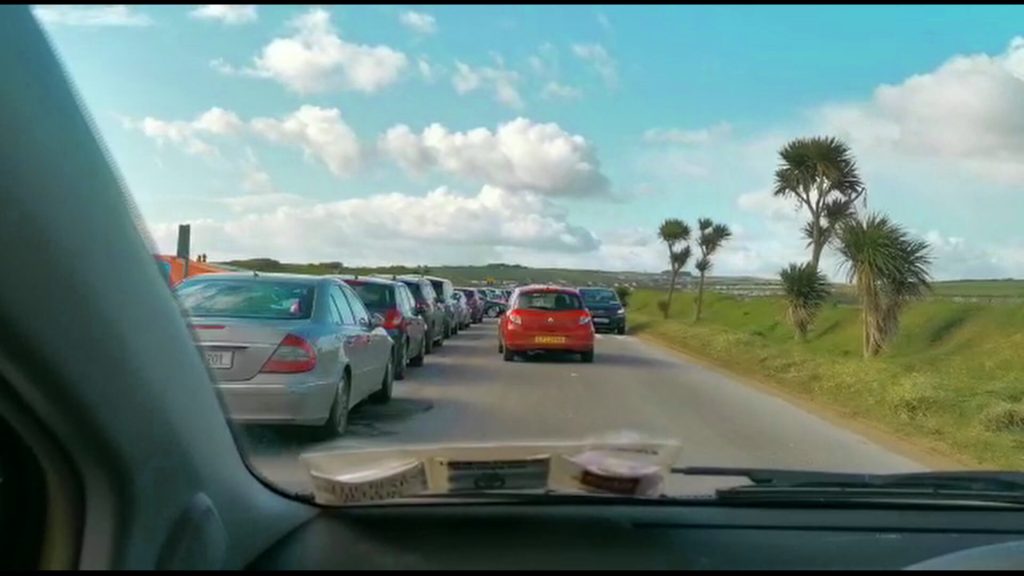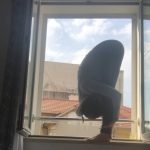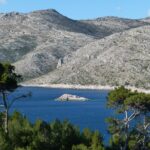April 5, 2020 – With as many Croatians living abroad as in the Homeland, what are the diaspora experiences of self-isolation? In the second of a new series, Corona Voices in the Croatian Diaspora, Lidija Ivanek SiLa on the current realities in Ireland.
Last week TCN started a feature series called Foreigner Self-Isolation In Croatia: Do You Feel Safer? I can honestly say we have never had such a response or so many incredible contributions. The countries of origin of these expats in Croatia literally from all over the world. So far we have had submissions from expats from Romania, USA, Ireland, UK, Mexico, Argentina, Spain, Singapore, Holland, Canada, India, Hong Kong, Venezuela, Latvia, China, Honduras, Hungary, Moldova, new Zealand and Germany. You can see all their stories here.
Given the success of the series (still going strong) and large interest, it made sense to expand it to look at this from another angle – how Croatians abroad are coping where they are. If you would like to contribute your story to Corona Voices in the Croatian Diaspora, please find the submission guidelines below.
And now, let’s hear how Lidia Ivansk SiLa is getting on in Kinsale, Ireland.
Firstly, how are you? Are you alone/with someone? Tell us a little about your situation and sanity levels.
We are doing well, thank you. I live with my husband and we get along really well even in these extraordinary, confining situations. I know that some of my friends have reported having issues with their spouses, “colliding energies” that’s what they said. I guess, our “normal” is connected with technology and the Internet and that is not changed during corona. As I am a digital artist and he is in IT, so that helps a lot to continue with some routine, some normality in everyday life. Our Internet connection is great, fibre (1Gb) so all is well.
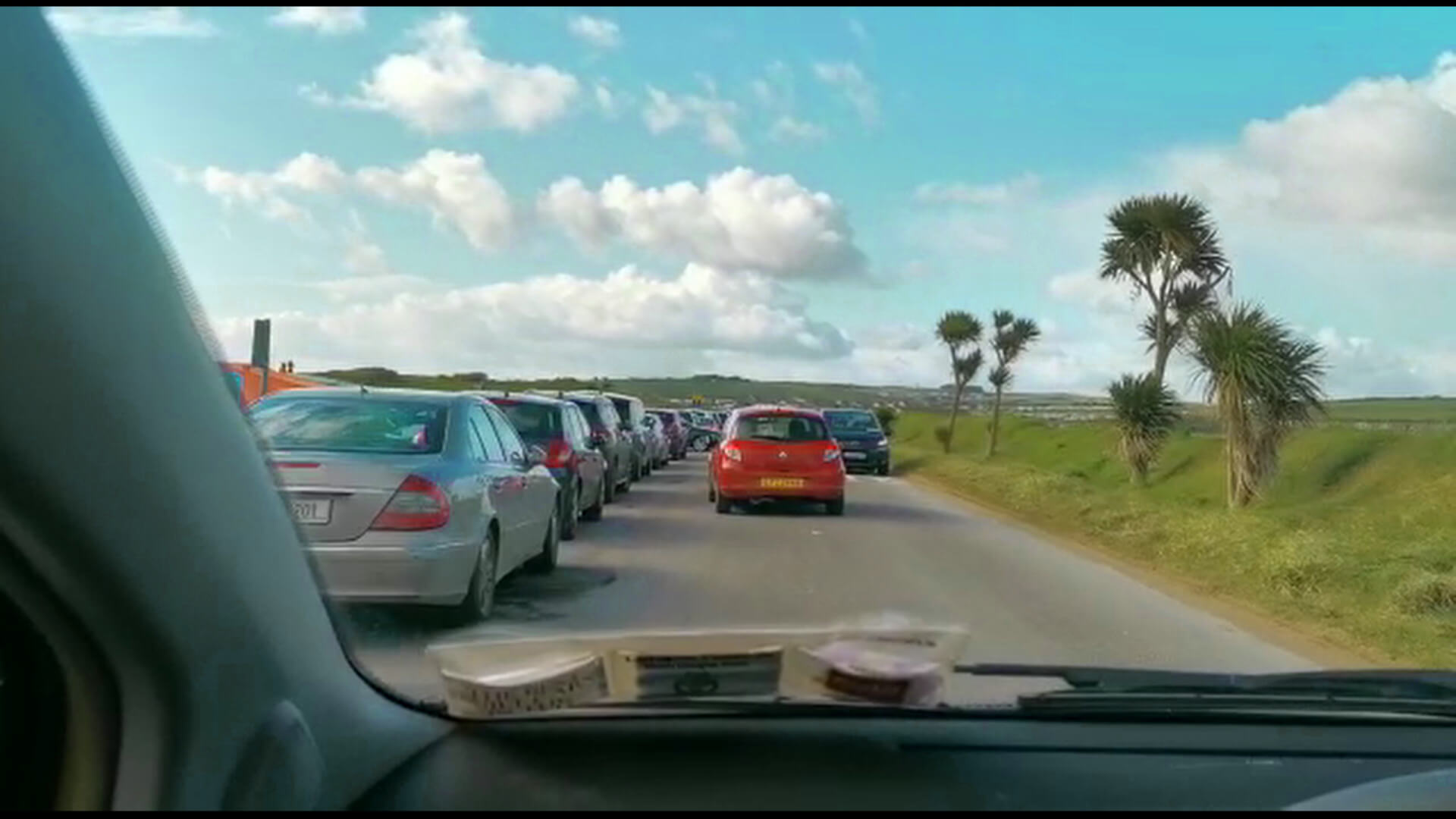
When did you realise that corona was going to be a big issue?
The first time I heard Taoiseach Leo Varadkar addressed the nation at the beginning of March. The Irish prime-minister is not often in the media and this was his 7th public appearance. This meant it is very serious. He started his speech with: “I need to speak to you about Coronavirus and Covid-19.” It was the day after the World Health Organisation formally described Covid-19 as pandemic and the European Centre for Disease Prevention and Control (ECDC) updated its guidelines advising all to act early to be effective.
When did you realise that corona was going to be a big issue in Kinsale in particular?
It’s not a big issue. It is an issue. It is what it is for the whole of Ireland. We haven’t had any cases in Kinsale yet and I hope it will stay that way. Kinsale is not a big town and the people, 99% of them, are obeying advice given by the government.
Close to Kinsale is the bigger city of Cork, and as any big city it has more problems as the population lives in closer proximity. Cork, by number of cases is in second place while Dublin leads.
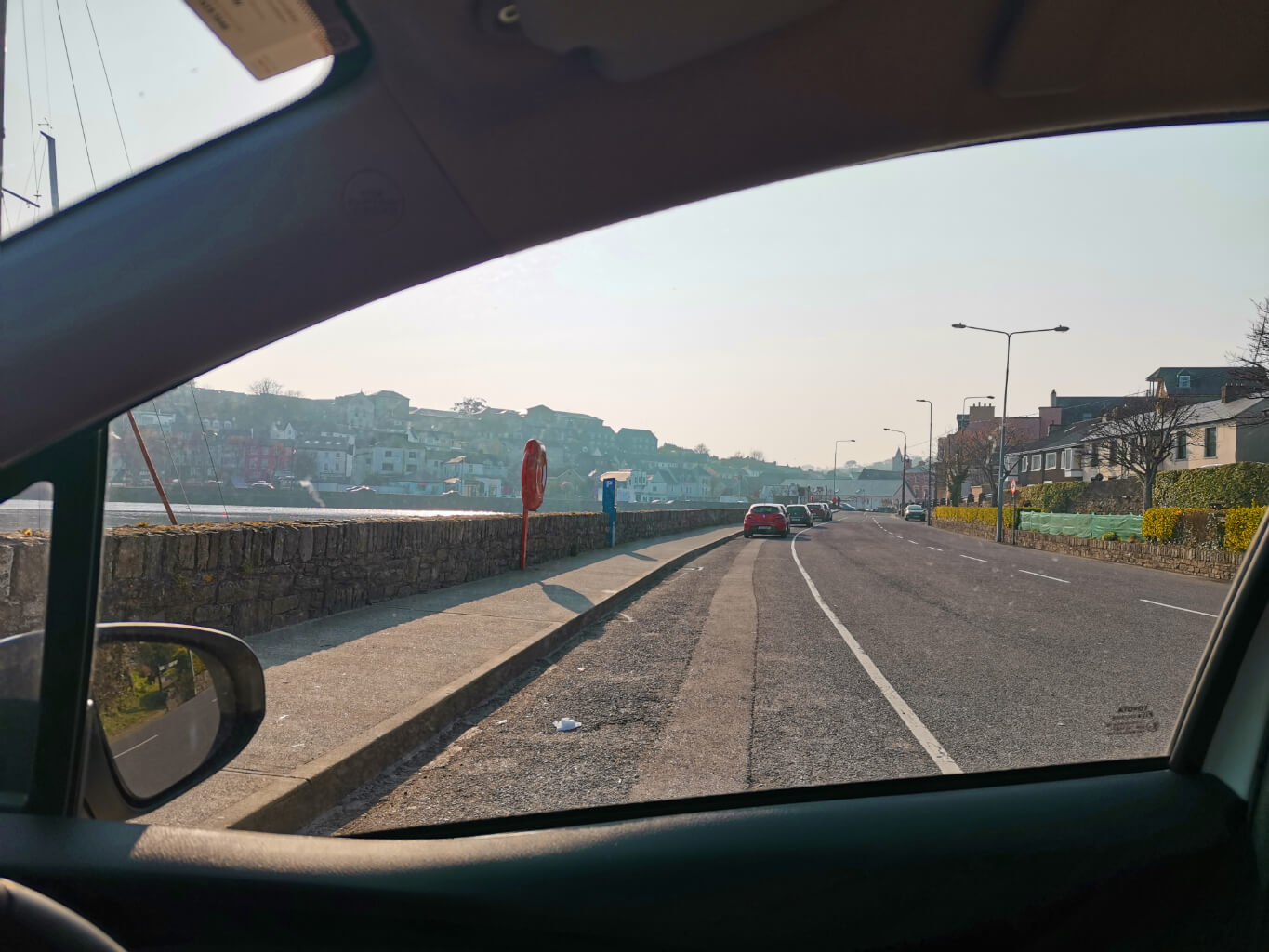
Give us a timeline on when and how life changed.
After the Taoiseach’s first speech (I think it was on 12th March) about corona, he announced that schools, colleges and childcare facilities will close until 29 March because of Covid-19, and indoor mass gatherings of more than 100 people and outdoor mass gatherings of more than 500 should be cancelled. That was the first time we were introduced with the term “social distancing” and the rule of two meters apart.
The second Taoiseach’s speech was on St. Patrick’s Day (17th of March) and it was the hardest and saddest celebration of St.Patrick’s ever. We listened with a knot in our stomachs to these words: ”So far the number of cases in Ireland has been relatively small. However, we believe that number will rise to fifteen thousand cases or more by the end of the month and rise further in the weeks thereafter.
“The vast majority of us who contract Covid-19 will experience a mild illness, but some will be hospitalised and sadly some people will die. We cannot stop this virus but working together we can slow it in its tracks and push it back.” At that point, the measures become more strict. Large public gatherings were cancelled. All pubs and bars were shut. Work from home whereever possible became the new policy. And a new motto was introduced ‘Come together as a nation by staying apart’
The third speech from the Taoiseach announced further Covid-19 restrictions, on 27th March, and everybody had to stay at home except in specific circumstances. This is where we are now. The restriction is until 12th April, but it can be prolonged. Specific circumstances means going to the store, pharmacy, doctors, essential work and 2km radius for brief physical exercising (alone or family living together). Other exemptions include farming, the care of animals and leaving home for vital family reasons such as providing care for the elderly or vulnerable.
Tell us about your day. Do you/can you leave your apartment?
We both work from home (as advised by the government). Having a job that is still ongoing during the crisis is a blessing. Not only a financial blessing, but also for our wellbeing, our mental health. We work the normal 8 hours a day. The only difference is that I need to cook more meals, lol, as my hubby is at home during his lunch breaks. My husband is going grocery shopping once a week as he can pay with his phone. It is advised not to pay with money, but by tapping a card or phone. The shops are well stocked.
After initial panic buying, yeah we did have that here too, almost every item is back in stock (still lacking sanitisers, some cleaning stuff, masks and gloves). It is so funny what people think it is necessary to stockpile. Our stores have specific times that are only for the elderly so they can have more protection. Weather permitting once a day we are going for a brief walk in a 2 km radius. We have some wonderful scenery in those 2 km. The only thing we are missing is people. Kinsale Baptist Church which we are members of is gathering through Zoom meetings online. Our social life is now mainly online. We had a surprise visit from our friends the other day. They live in the 2km radius from us. They walked their dog to our place and we talked through the balcony. We live in a building with 10 apartments. The door of the building now stays open all the time, so there is no need to touch the handle. Delivery services are working with no or slight delays. So far so good.
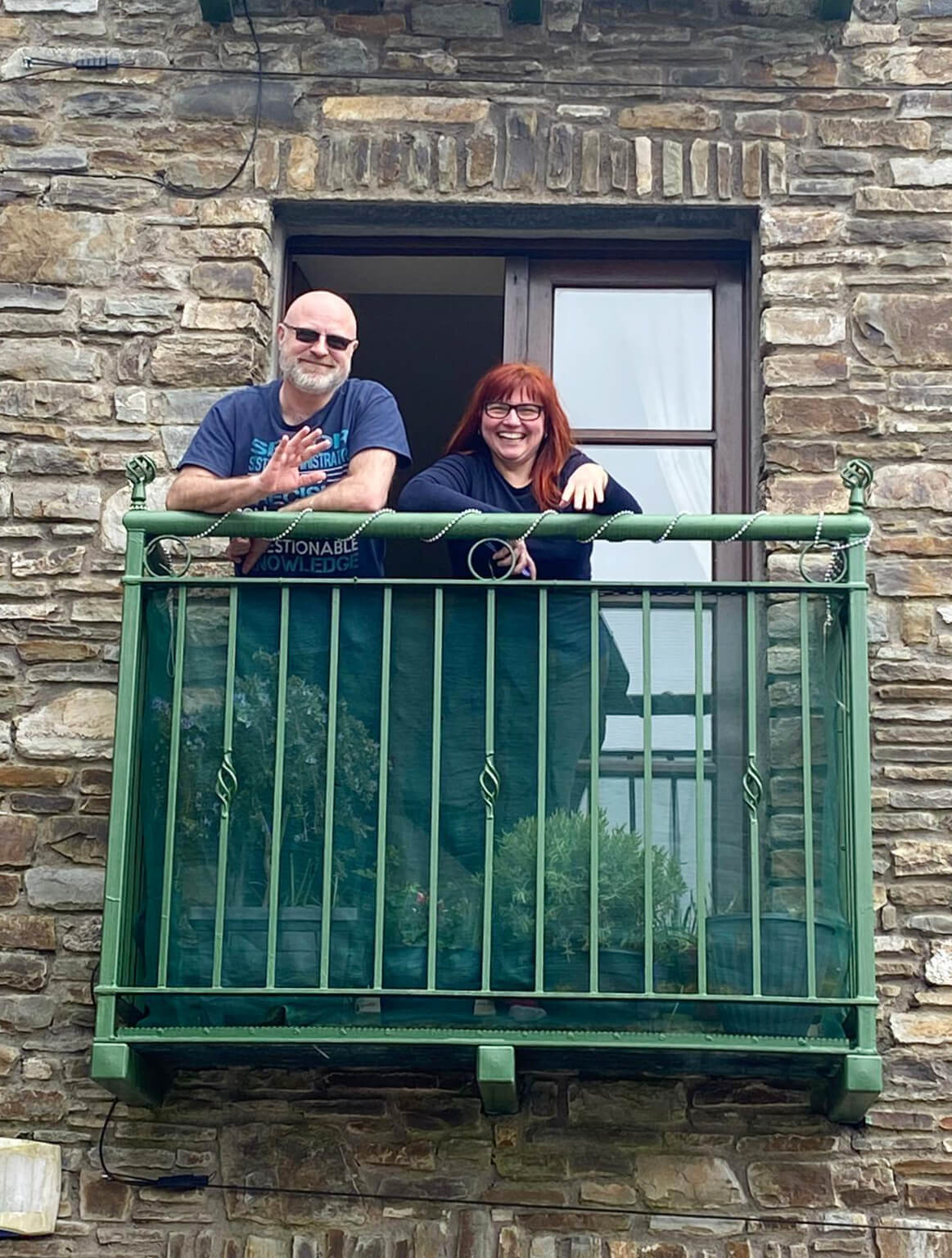
How are the authorities doing at handling the situation?
Every resource and help is used to fight it. Medical staff are working to the maximum. A lot of retired medical stuff even last year students joined in. The problem that Ireland has was from way back and that is a lack of beds in hospitals, lack of hospitals in general and lack of staff. That is our bottleneck. That is why is so important to flatten the curve and reduce the numbers. The authorities are doing their best in the given circumstances.
Another thing that mustn’t be neglected is the significant impact on the economy. Ireland is in a very good position there. Ireland has the ability to pay welfare for all the people that can’t work anymore as a lot of businesses closed and a lot more will close in the future. And that welfare is not just “on the paper” as I first handedly know that it is already been delivered to some of my friends. Also, the Government is helping businesses to keep on working, there are several schemes that they can get the help needed.
This pandemic has a huge impact on so many levels and the Irish government by my humble opinion is doing the best in given circumstances.
You obviously keep an eye on your homeland. What is your impression of the way Croatia is dealing with the crisis?
I know that numbers in Croatia are low, which is really good. Whether these numbers are a good indicator or not probably depends about the number of tests each country is able to perform, or are the deaths linked to the death by coronavirus. I try not to read Croatian newspapers in the same way I avoid reading about corona here. Too much negative information is just not healthy. My main information about the situation in Croatia is from my family and friends and our conversations. I know that they are indoors, that schools are closed and that permits have been introduced. So apart from permits, it is similar to Ireland. My parents live in Zagreb and it was terrifying to listen and watch images after the earthquake. I was and still am worried about them and their health. Everything went well during the earthquake, none of my relatives and friends were hurt. As my parents are elderly, for me to be so far away and without the ability to visit them is hard. We had to cancel our flight to Zagreb in May. When we will be able to fly there is unknown. Scenes from Zagreb after the earthquake were worse than during the war. The devastation and empty streets painted an awful picture. My parents have support from neighbours and they can call doctors, there is the advantage of an electronic prescription for medicines and I know that contact with others is reduced. That is all good news for them and at the same time it is bad news as social isolation for the elderly is even tougher.
Croatia had a really excellent healthcare system. How much of that excellency is left after so many quality doctors left the country for better life in other countries, that I do not know.
Compare and contrast the responses of Croatia and Ireland. Who is doing what better?
This question is so competitive, so very Croatian.
The pandemic is an awful situation, where people’s lives are in serious danger, not only because of the virus, but the potential collapse of the economy. In the beginning, when the situation started to develop in Europe, I had words similar to your question from my Croatian friends – who is (doing) better. It is so unlikely to hear something like that in Ireland. It is in the Croatian soil probably, the need to compete, I’m sure that is the reason that we are so good at sports, but this isn’t a sport.
This pandemic tests every single person, every government, and healthcare in the world. The response from Croatia and response from Ireland vary depending on the resources and abilities that are available. It also depends on the culture and landscape. If it’s more rural or a denser population it will make a difference. The things that I can talk about is how I dread for my Croatian friends who are already put on minimal wages the amount which in Croatia is not enough for a normal living. I worry about my friends whose sole living depends on tourism and now there is no tourism.
And I know that the Croatian government is not in the position to give those people enough financial help and on time which is also a crucial factor. I worry about my elderly friends in Ireland if they’ll end up in hospitals if it’s going to be enough respiratory ventilators, enough beds. These are the things that we can talk about. We can compare how heroic individuals are giving all their talents and abilities to help fellow citizens which is happening in Ireland as well as in Croatia. We can laugh at memes and jokes of panic buying or funny ways to survive the isolation that are ongoing in both countries. Good and positive stories in the midst of terrifying circumstances.
What about official communications from the authorities, compared to your home country?
I think that they both do a great job. The public is well informed and there is not much to say about the topic.
What’s the one thing you wish you had taken with you into self-isolation?
Nothing actually. We have pretty much everything. Oh, no one thing I am missing, lol, henna. I have a though time to get a supply of henna dye for my hair. Now without hairdresser services I need to maintain my hairstyle as best I can (as many women today). Lush was my official supplier of henna and it is closed now and I really wish I had bought more of it while I had a chance.
One thing you have learned about yourself, and one thing you have learned about others during this crisis.
This is not my first major crisis that affects the whole nation. I learned before how different people’s reactions can be. I learned how precious life is and how short it can be. Man is not in control of anything. Again and again, I see how some react selflessly, giving to society all they can and also the opposite, totally selfish actions. And then there are the special category of people which looks at how to gain profit from crisis – we saw plenty of them during the Croatian war – the lowest of the low.
If you could be self-isolating in Croatia, where would it be, and why?
The immediate answer would be on a fully stocked sailboat with good and unlimited Internet moored somewhere near one of many unpopulated islands in Croatia, haha, that’s the dream so many of us dream. Especially with summer coming and no way to see the Adriatic soon. But the reality is that closer to my parents would be great, so Zagreb would be the answer.
Thanks, Lidija. Stay safe and see you on the other side. You can see all the stories in both this diaspora series, and the one on expats in Croatia on this link.
TCN is starting a new feature series on Croatian diaspora experiences of sitting out COVID-19 abroad and comparing your experiences to the situation in Croatia. If you would like to contribute, the questions are below. Please also include a para about yourself and where you are from, and a link to your website if you would like. Please also send 3-4 photos minimum to news@total-croatia-news.com Subject Corona Diaspora
If you would be interested to record a video version for our partners www.rplus.video please let us know in the email. Thanks and stay safe.
Self-Isolation Voices from the Diaspora
Firstly, how are you? Are you alone/with someone? Tell us a little about your situation and sanity levels.
When did you realise that corona was going to be a big issue?
When did you realise that corona was going to be a big issue in New York in particular?
Give us a timeline on when and how life changed.
Tell us about your day. Do you/can you leave your apartment?
How are the authorities doing at handling the situation?
You obviously keep an eye on your homeland. What is your impression of the way Croatia is dealing with the crisis?
Compare and contrast the responses of Croatia and USA. Who is doing what better?
What about official communications from the authorities, compared to your home country?
What’s the one thing you wish you had taken with you into self-isolation?
One thing you have learned about yourself, and one thing you have learned about others during this crisis.
If you could be self-isolating in Croatia, where would it be, and why?
TCN has recently become a partner in Robert Tomic Zuber’s new R+ video channel, initially telling stories about corona experiences. You can see the first TCN contribution from this morning, my video from Jelsa talking about the realities of running a news portal in the corona era below. If you would like to also submit a video interview, please find Robert’s guidelines below
VIDEO RECORDING GUIDE
The video footage should be recorded so that the cell phone is turned horizontally (landscape mode).
There are several rules for television and video news:- length is not a virtue- a picture speaks more than a thousand words
In short, this would mean that your story should not last more than 90 seconds and that everything you say in the report should be shown by video (for example, if you talk about empty streets, we should see those empty streets, etc.).
How to do it with your cell phone? First, use a selfie camera to record yourself telling your story for about a minute and a half. Ideally, it would be taken in the exterior, except in situations where you are reporting on things in the interior (quarantine, hospital, self-isolation, etc.). Also, when shooting, move freely, make sure everything is not static.
After you have recorded your report, you should capture footage that will tell your story with a picture, such as an earlier example with empty streets.
One of the basic rules of TV journalism is that the story is told in the same way as a journalist with his text. Therefore, we ask you for additional effort. Because we work in a very specific situation, sometimes you may not be able to capture footage for each sentence of the report. In this case, record the details on the streets: people walking, the main features of the city where you live, inscriptions on the windows related to the virus, etc.
The same rules apply if you are shooting a story from your apartment, self-isolation, quarantine. We also need you to capture footage that describes your story.
When shooting frames to cover your reports, it is important that you change the angle of the shot (in other words, shoot that empty street from several angles). Also, when shooting a detail, count at least five seconds before removing the camera to another detail.
The material should be about 5 minutes long (90 seconds of your report + frames to cover your story).
After recording everything, send us to Zagreb, preferably via WeTransfer to rplus.video@gmail.com

